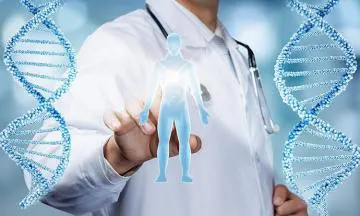

Is it Hypothyroidism or PCOS?
There are many symptom of thyroid disorders (hypothyroidism) and polycystic ovarian syndrome (PCOS) which are common. Due to the overlapping of the common symptoms many women go undiagnosed with either one of them. For getting the best treatment outcome it is very essential for the woman to be screened for both when she complaints suffering from common symptoms.
Why do women go undiagnosed or are misdiagnosed?
3 most important reasons that most women are either undiagnosed or misdiagnosed with anyone condition i.e. either thyroid disorder or PCOS is because of the following overlapping hypothyroidism symptoms and PCOS symptoms :
- Both the disorders cause irregular menses or month
- Both the disorders cause extreme fatigue
- Both the disorders cause weight gain
- Both the disorders cause hairloss
- Both the disorders cause a woman to become infertile
- Both the disorders cause bad mood swings
Hypothyroidism symptoms and PCOS symptoms can vary widely on the basis of the stage of disorder and lifestyle factors like weight and eating habits. Birth control pills are known to lower androgens and can interfere with the test results. Keeping this in mind a physician has to eliminate all the possible causes to reach the correct diagnosis of hypothyroidism symptoms.
How will a woman be certain that she is suffering from hypothyroidism symptoms?
A woman suffering from any of the above symptoms should undergo thorough screening to rule out either of the conditions. It could also be possible that she may suffer from both the conditions at the same time. Diagnosis should not be made only on the basis of the thyroid stimulating hormone counts. Complete thyroid profile which includes FT3, FT4, TSH and TPOAb should be done to confirm the existence of a thyroid problem
What next?
Once the diagnosis has been confirmed the next step is to heal the problem. Healing is not only with the medicines but also includes lifestyle changes along with diet changes.
Following tips will help you heal your thyroid problem as well as PCOS problems:
- Change your mindset: It is very easy to go into a negative thinking phase when a woman is diagnosed with hypothyroidism or PCOS. This is the time that you should have control over your negative thought and know that everything will be alright. Being patient, persistent and practicing self-love and self-forgiveness is very important for you to heal from within. The moment you start experiencing your own worth that is the moment you have already taken the first step towards healing yourself.
- Choose a treatment which will bear long-term results: Conventional medicines generally follow a suppressive approach in treatment of hypothyroidism or PCOS. It uses hormone replacement therapies which give relief until the effect of the medicine does not wear off. Homeopathic treatment for hypothyroidism or PCOS follows a curative approach rather than suppressive. It is the gentlest method of treating these disorders without any side-effects. Homeopathic medicines are prescribed on the basis of the detailed case history. Homeopathic medicines are very effective in treating underlying causes like stress and PCOS in cases of hypothyroidism and vice versa.
- Follow a healthy diet and get moving: A combined approach of hypothyroidism treatment and following a diet with lifestyle changes will give better treatment outcome. Both these conditions cause irregular menstrual cycles and infertility which need to be rectified at earliest. For the same following a well balanced diet and exercising regularly will help you lose weight and bring back the hormonal balance which will help regulate the menstrual cycles. This will also minimize the need for hormonal replacement therapies. Following a well balanced diet and exercising regularly is not only important for proper functioning of the thyroid but is important for the overall wellbeing of a person.




